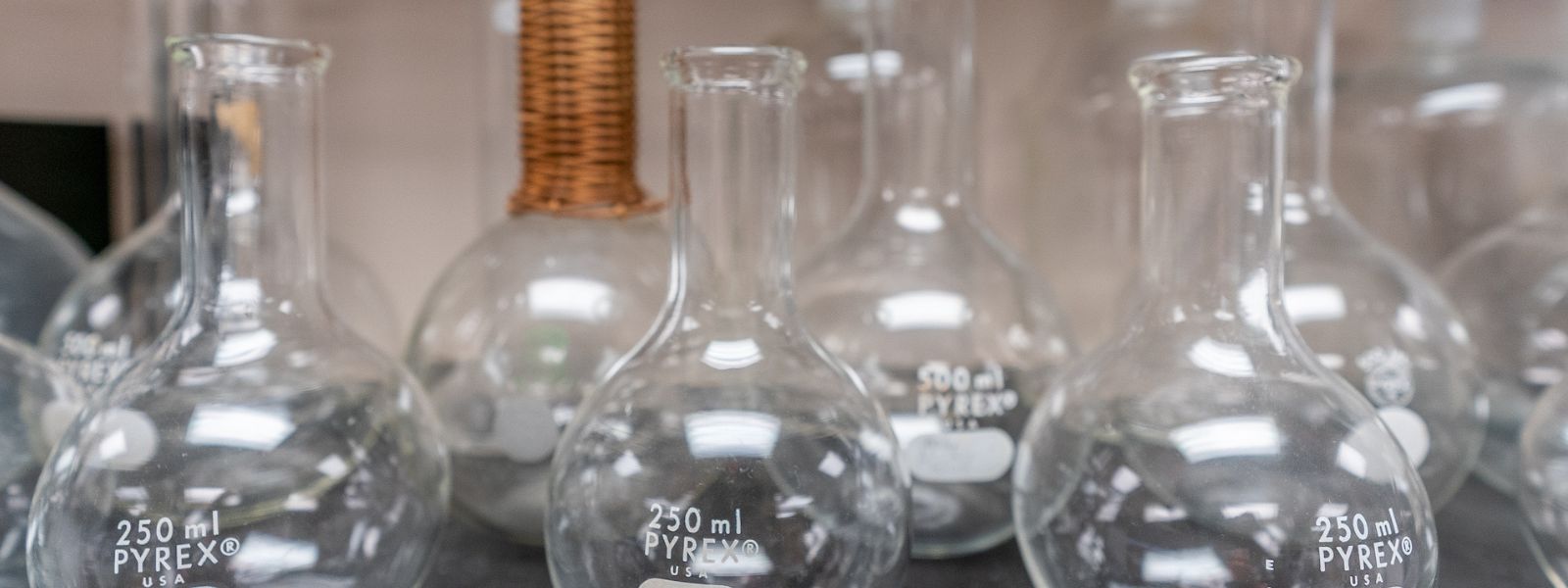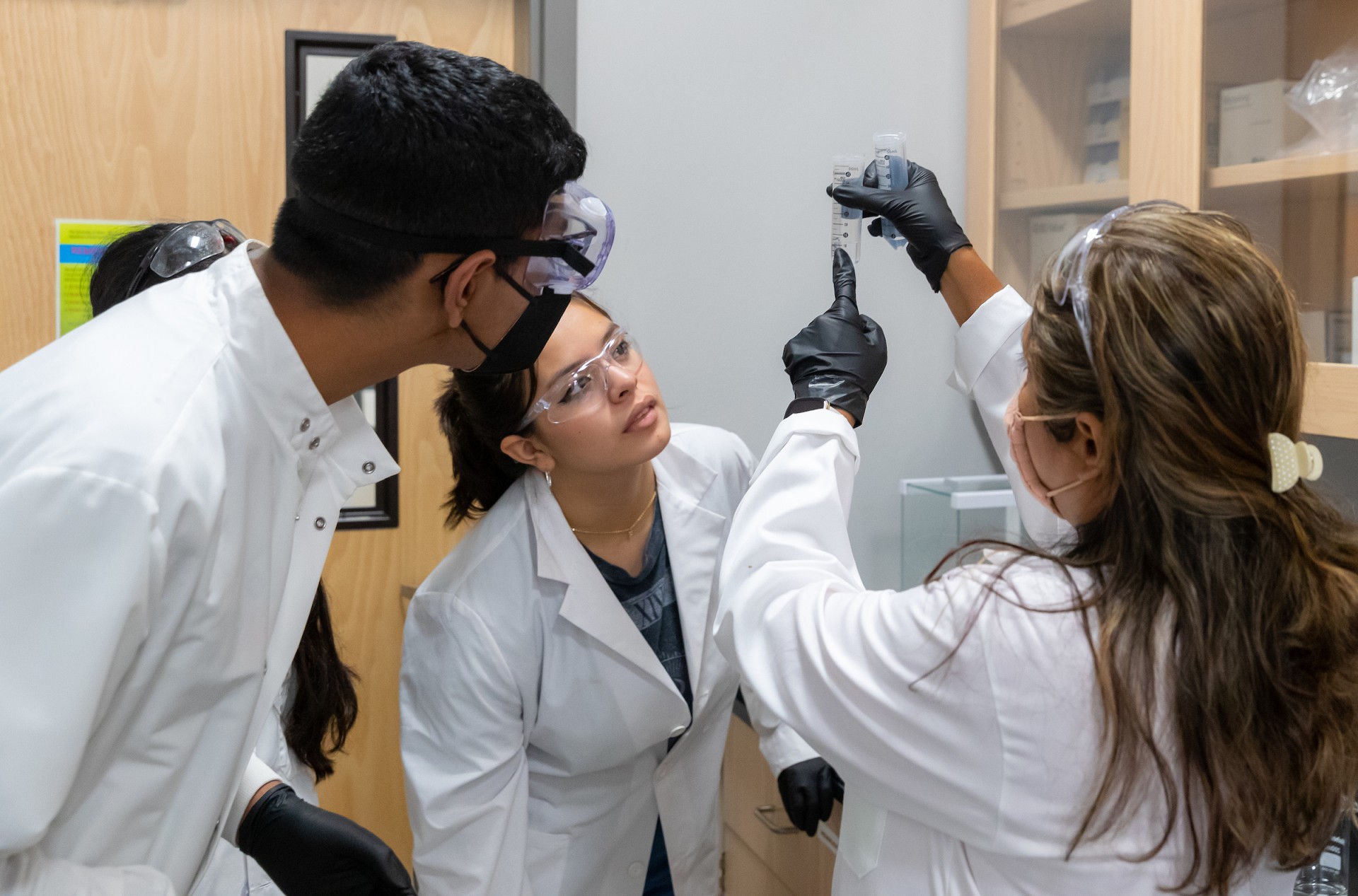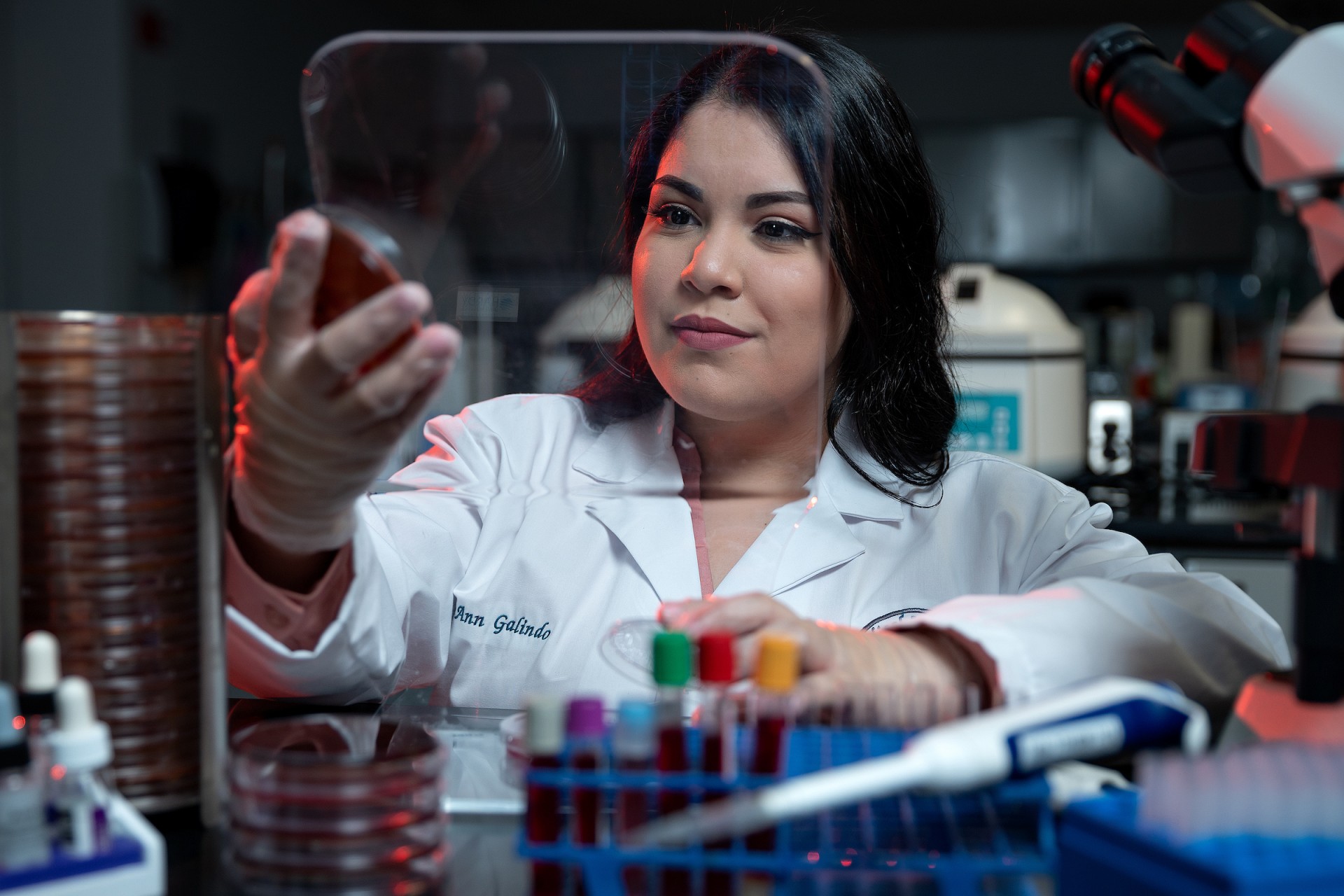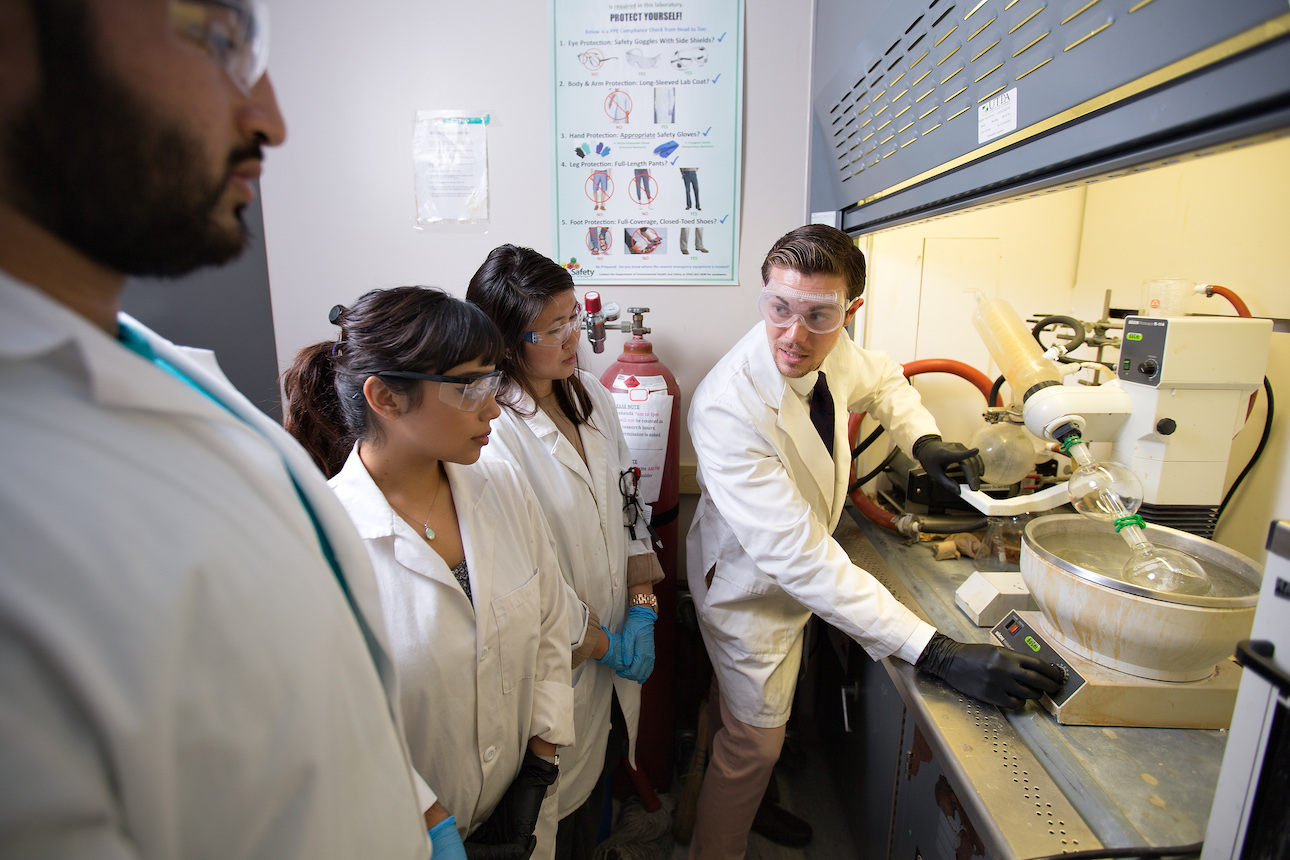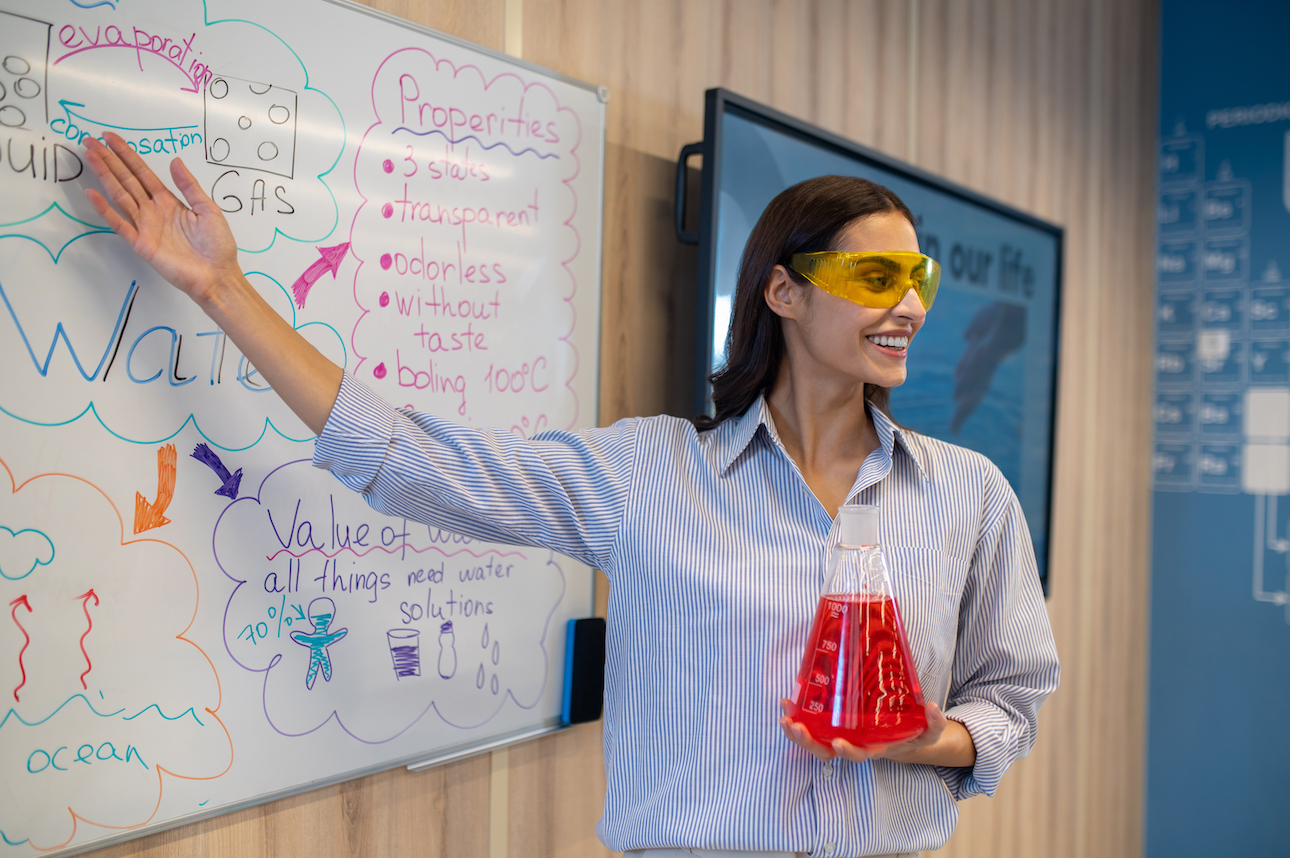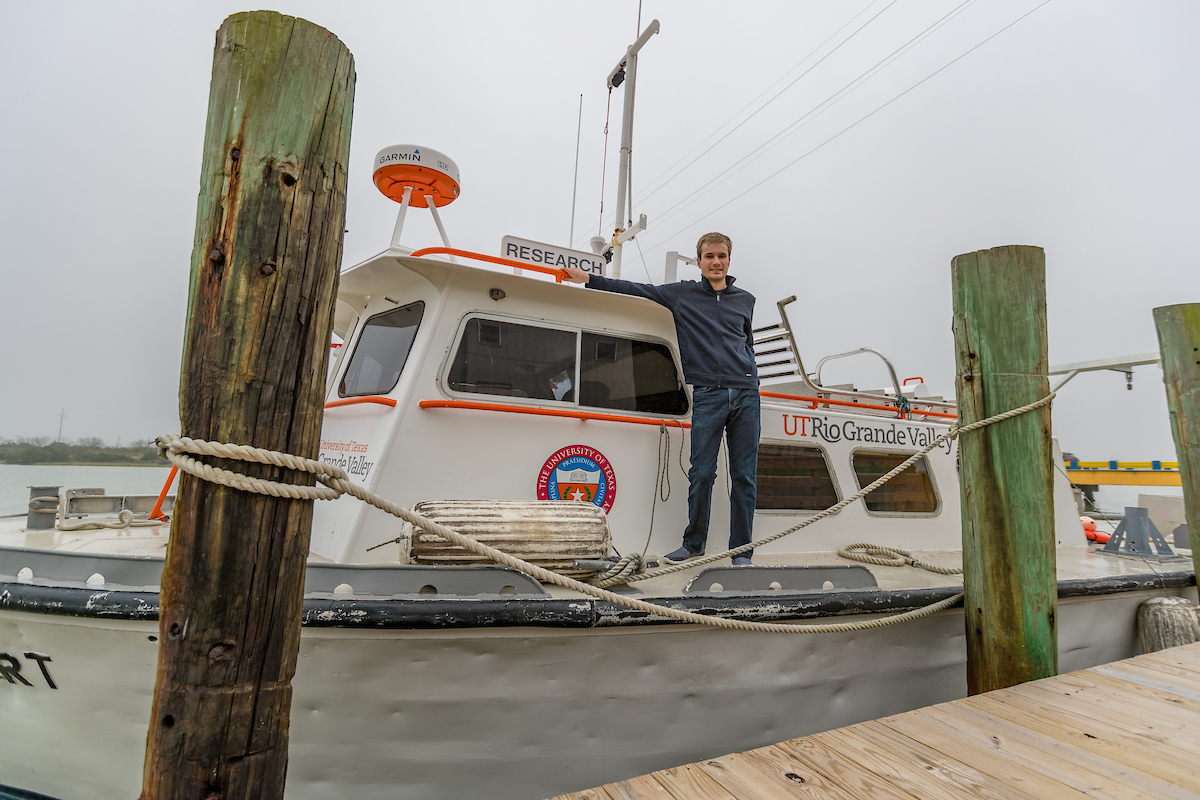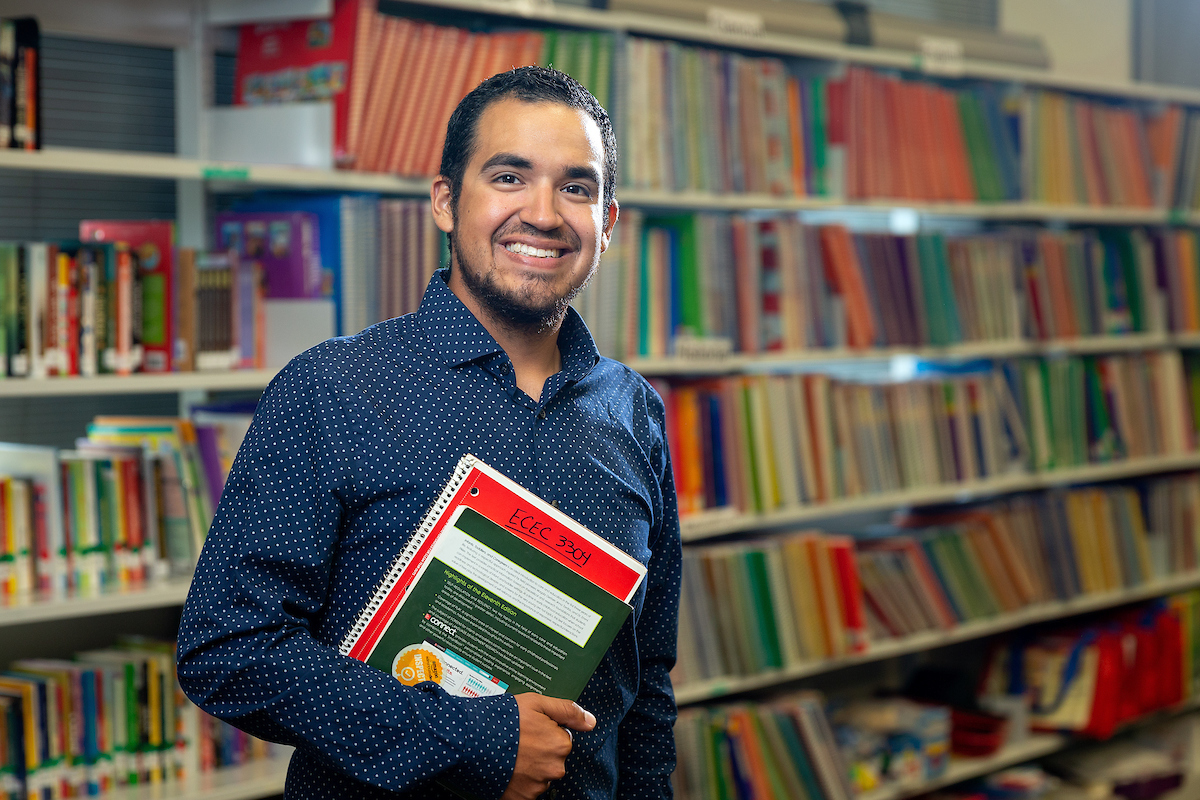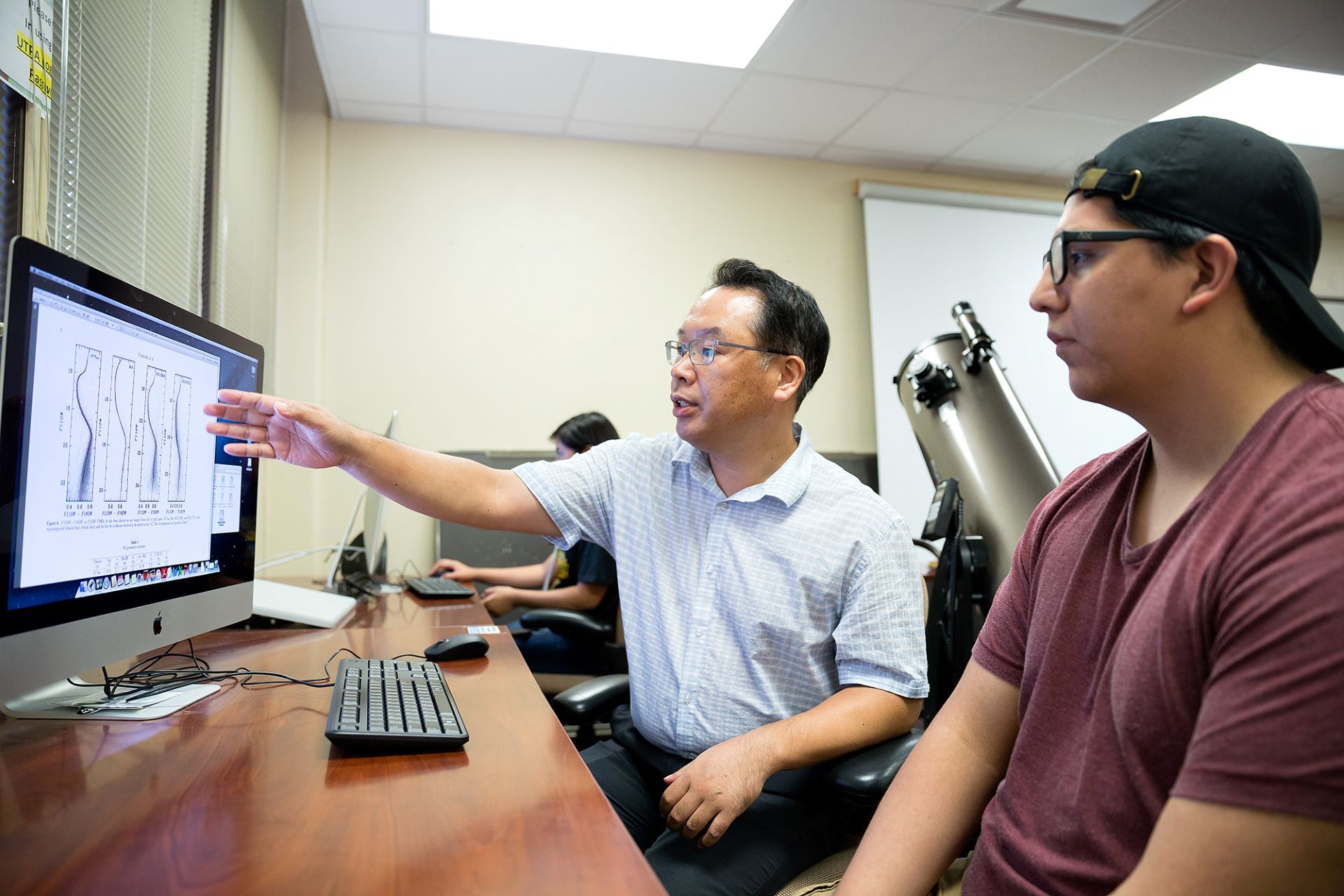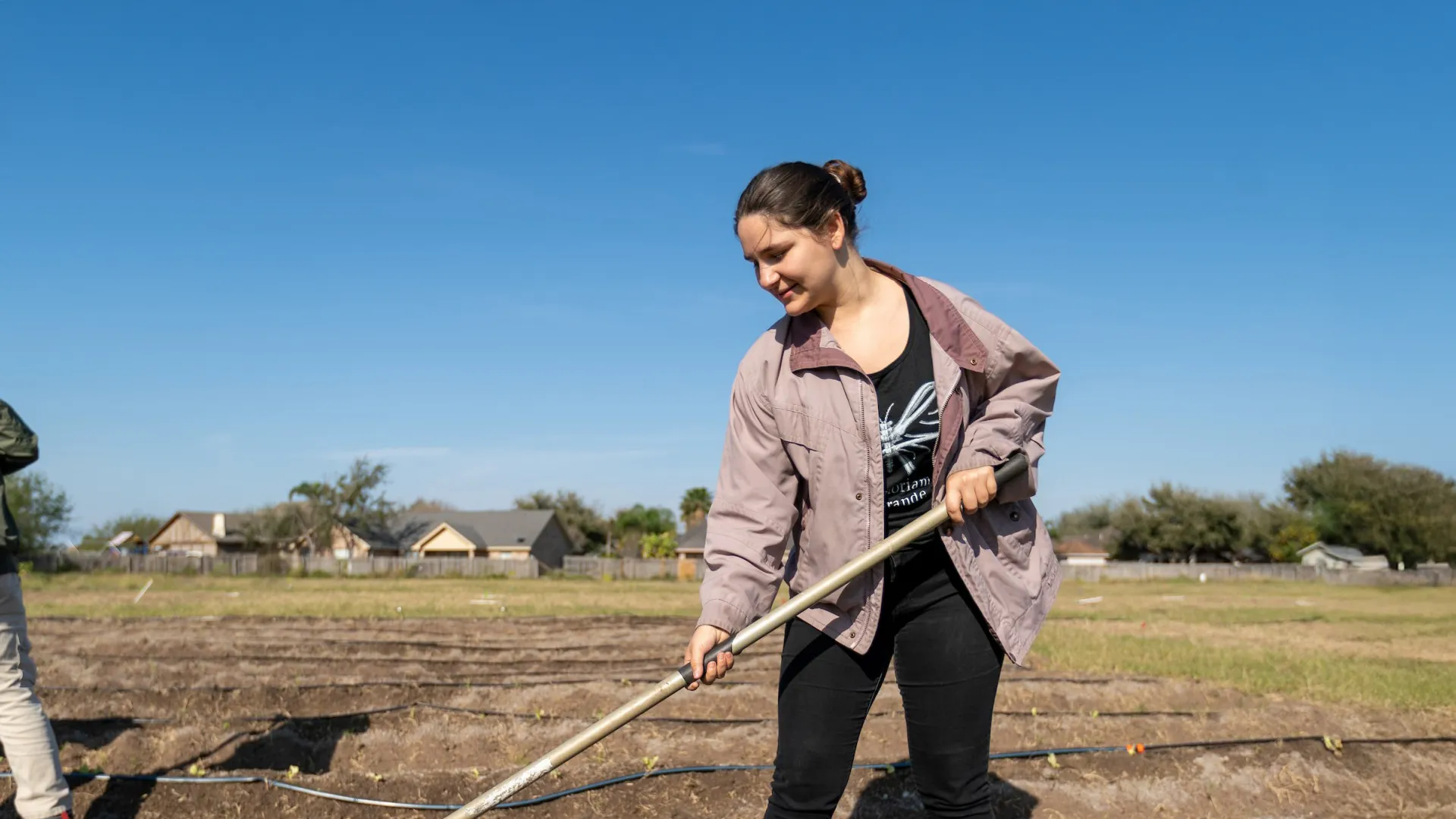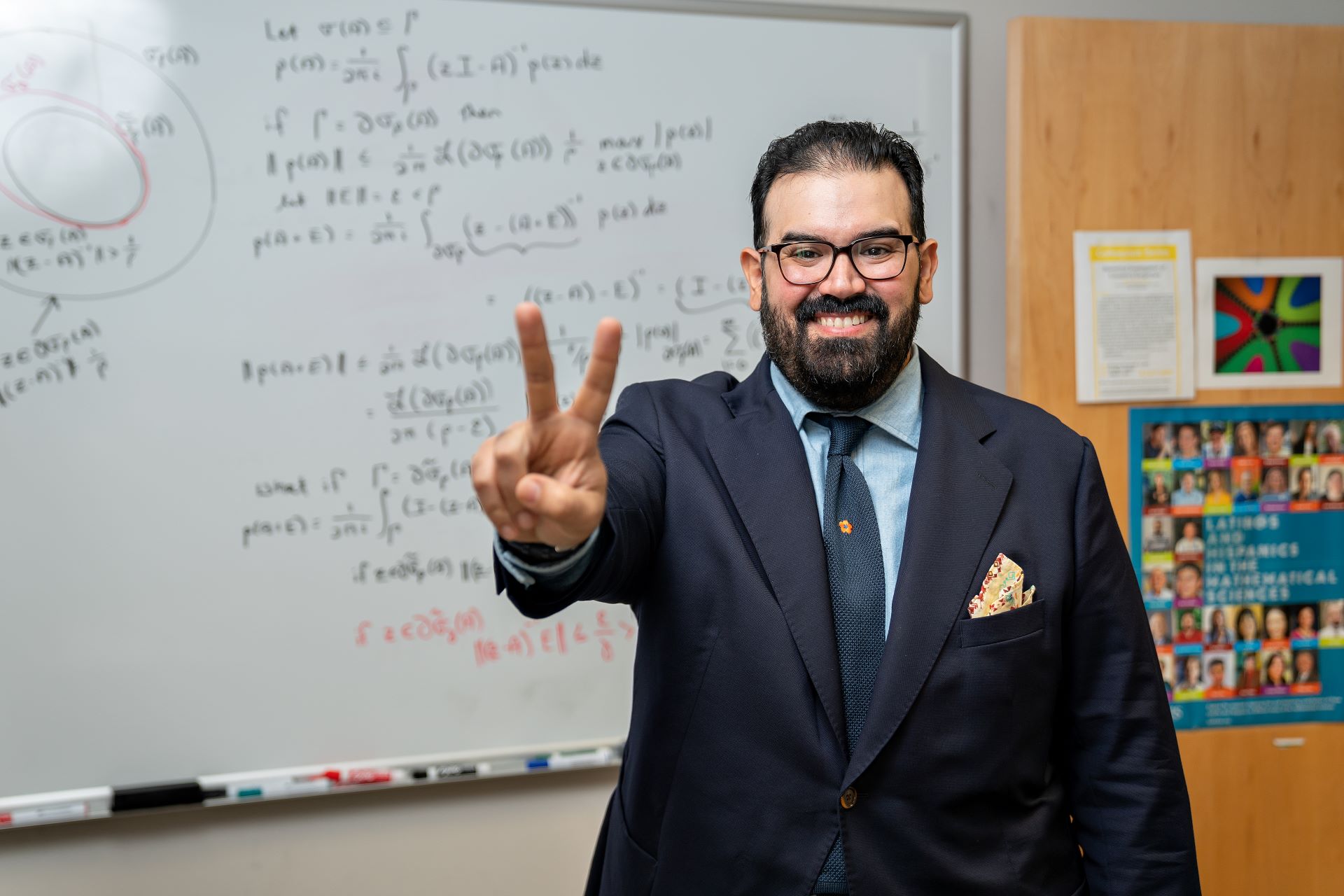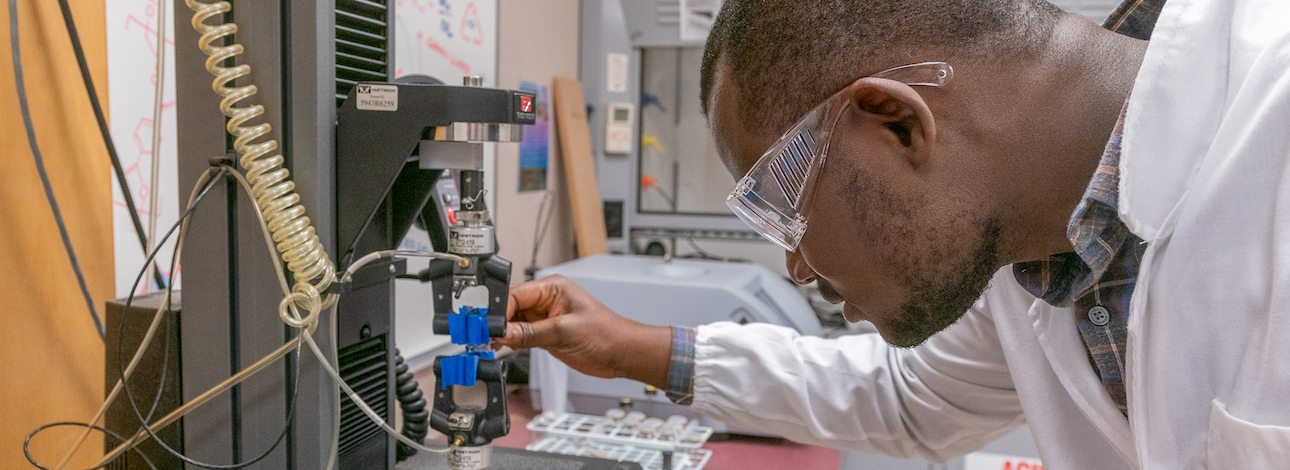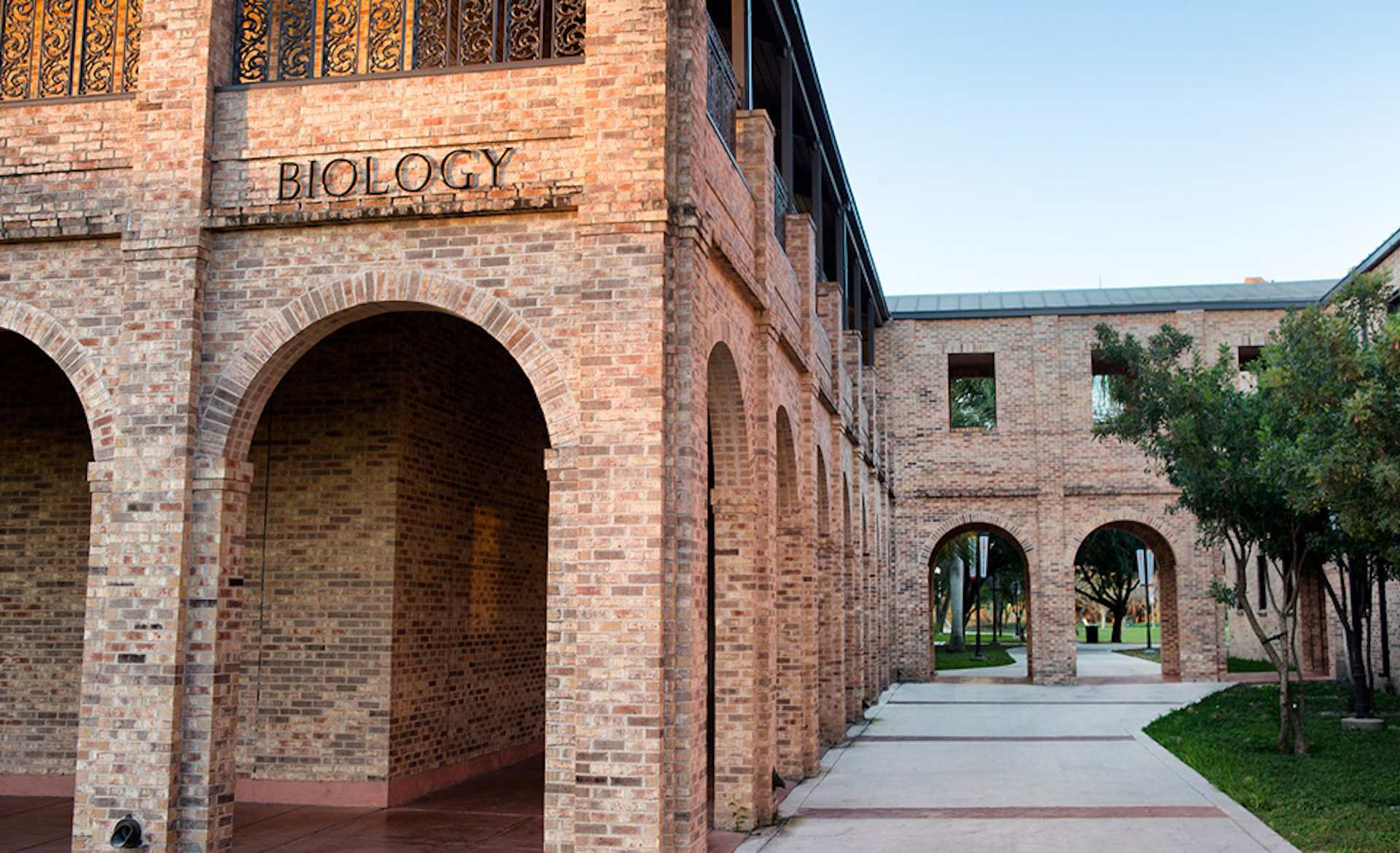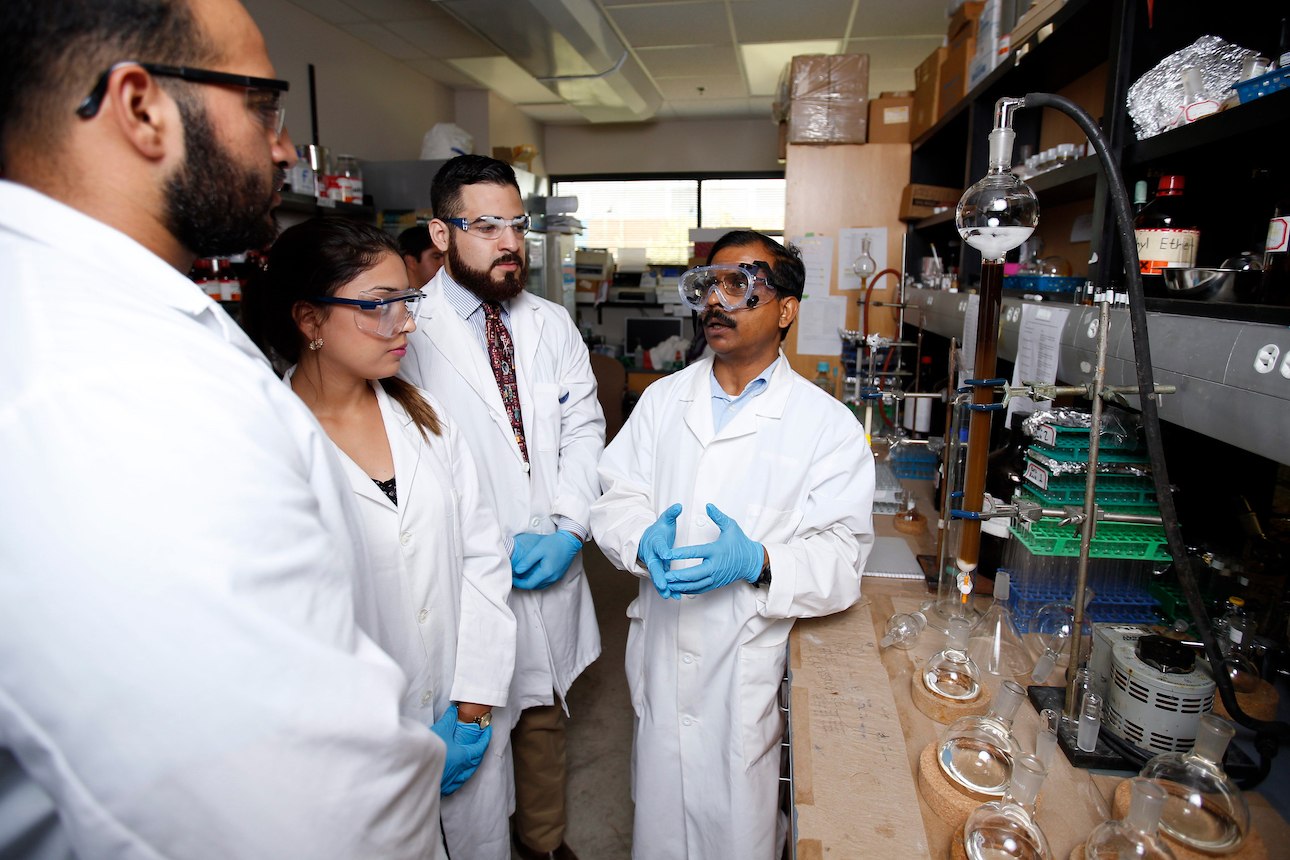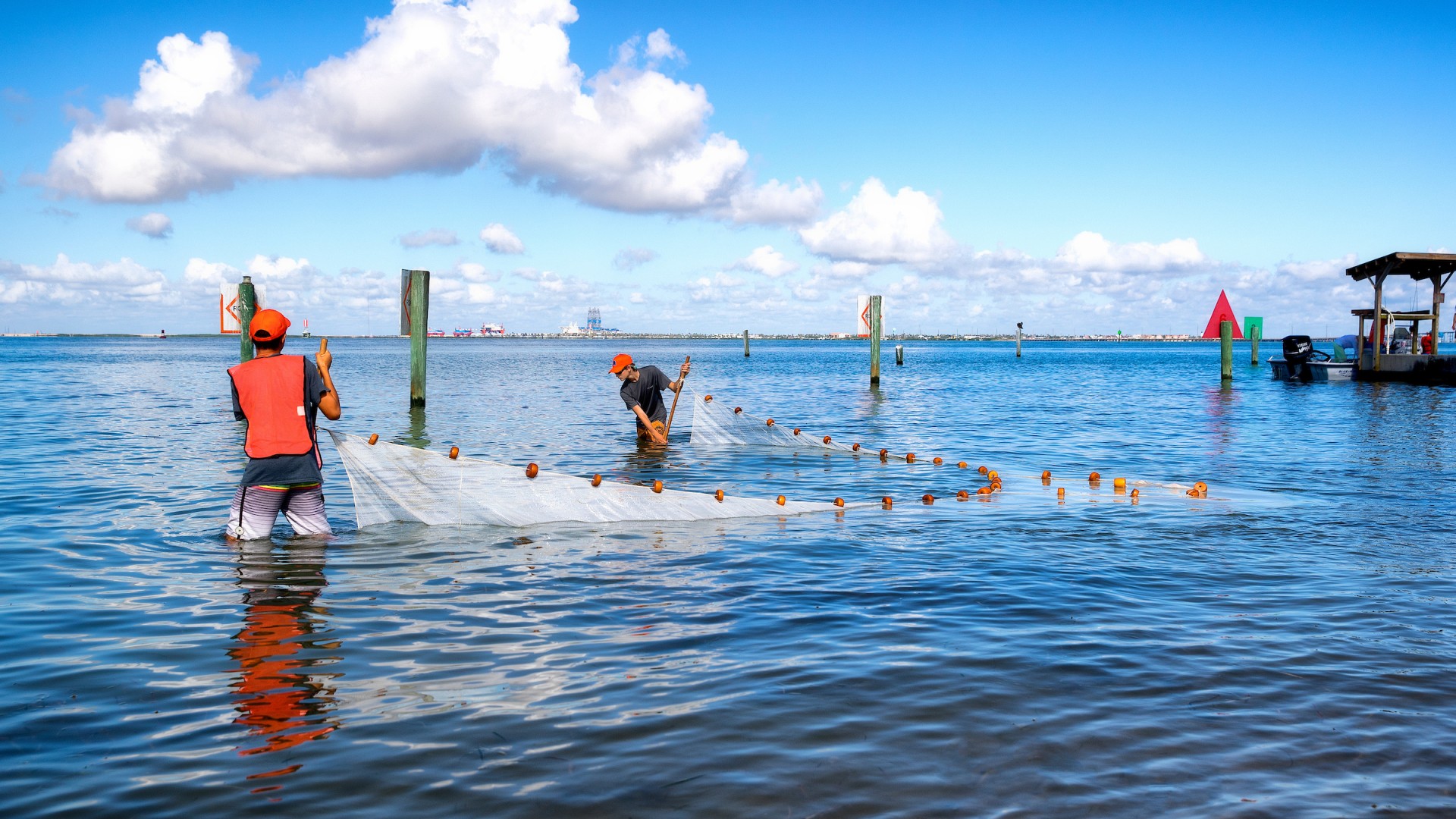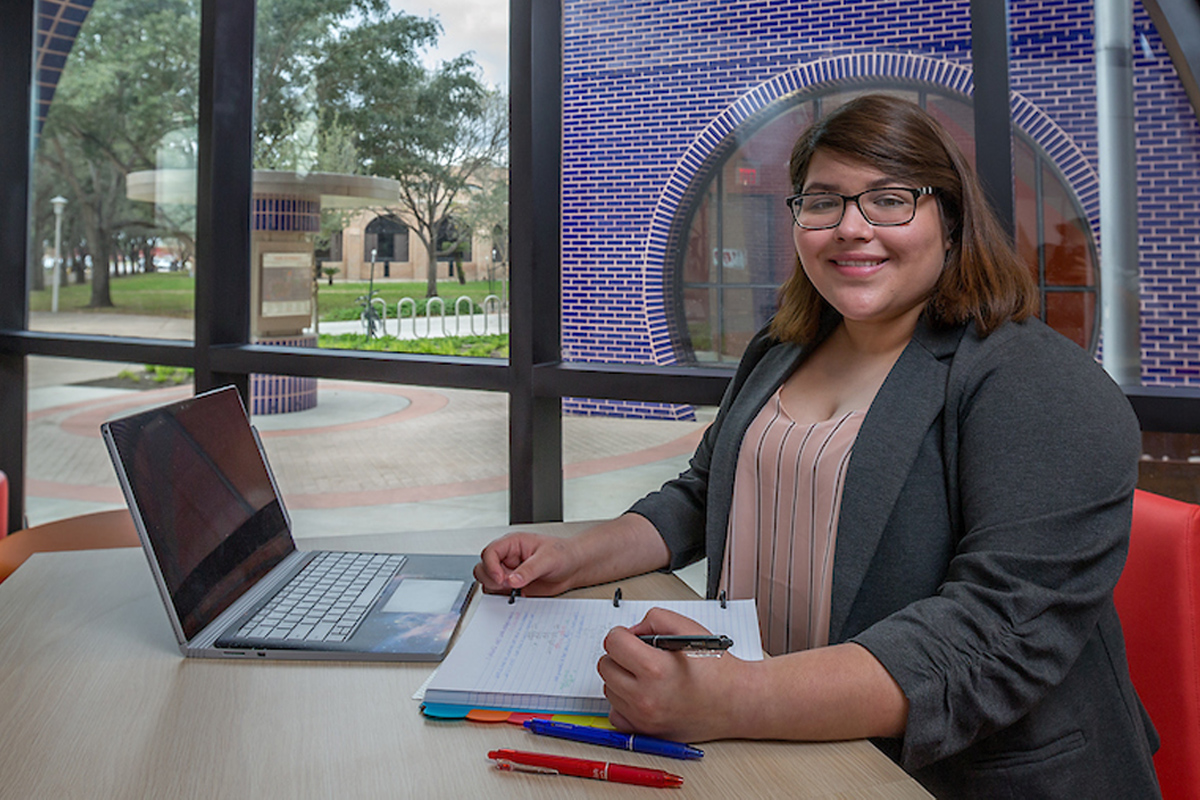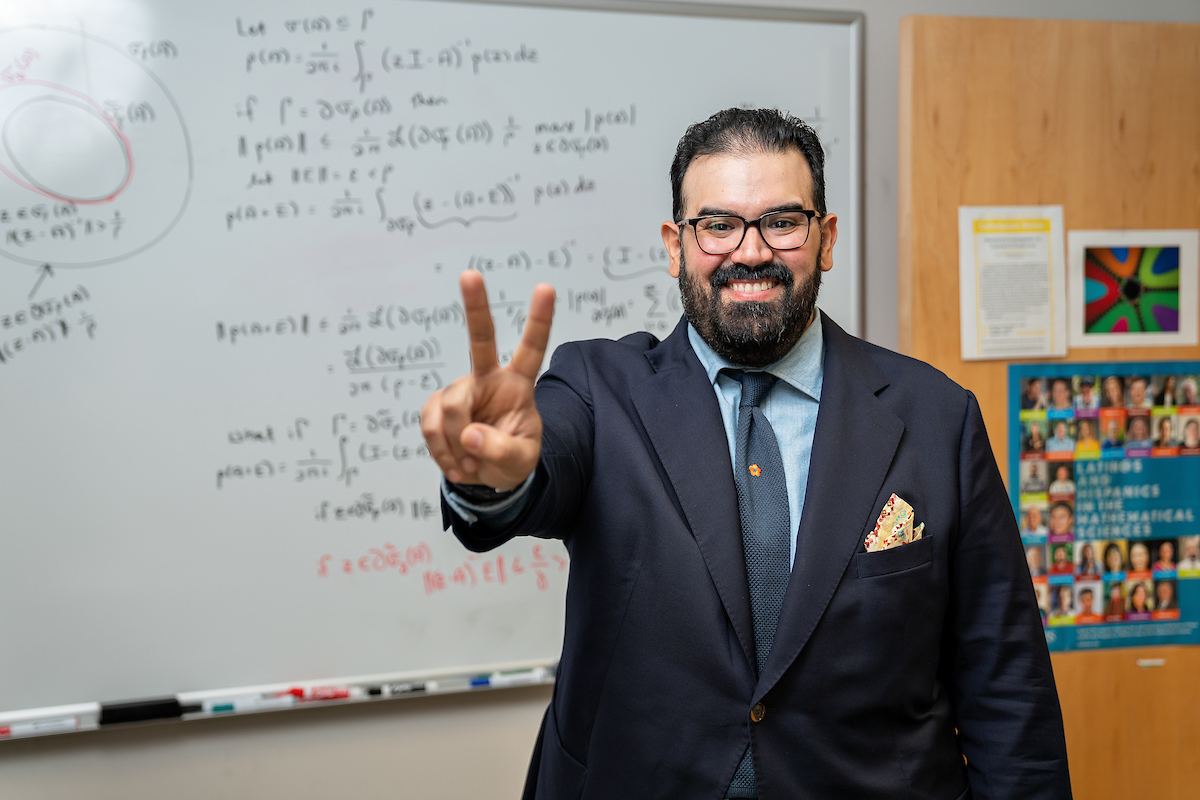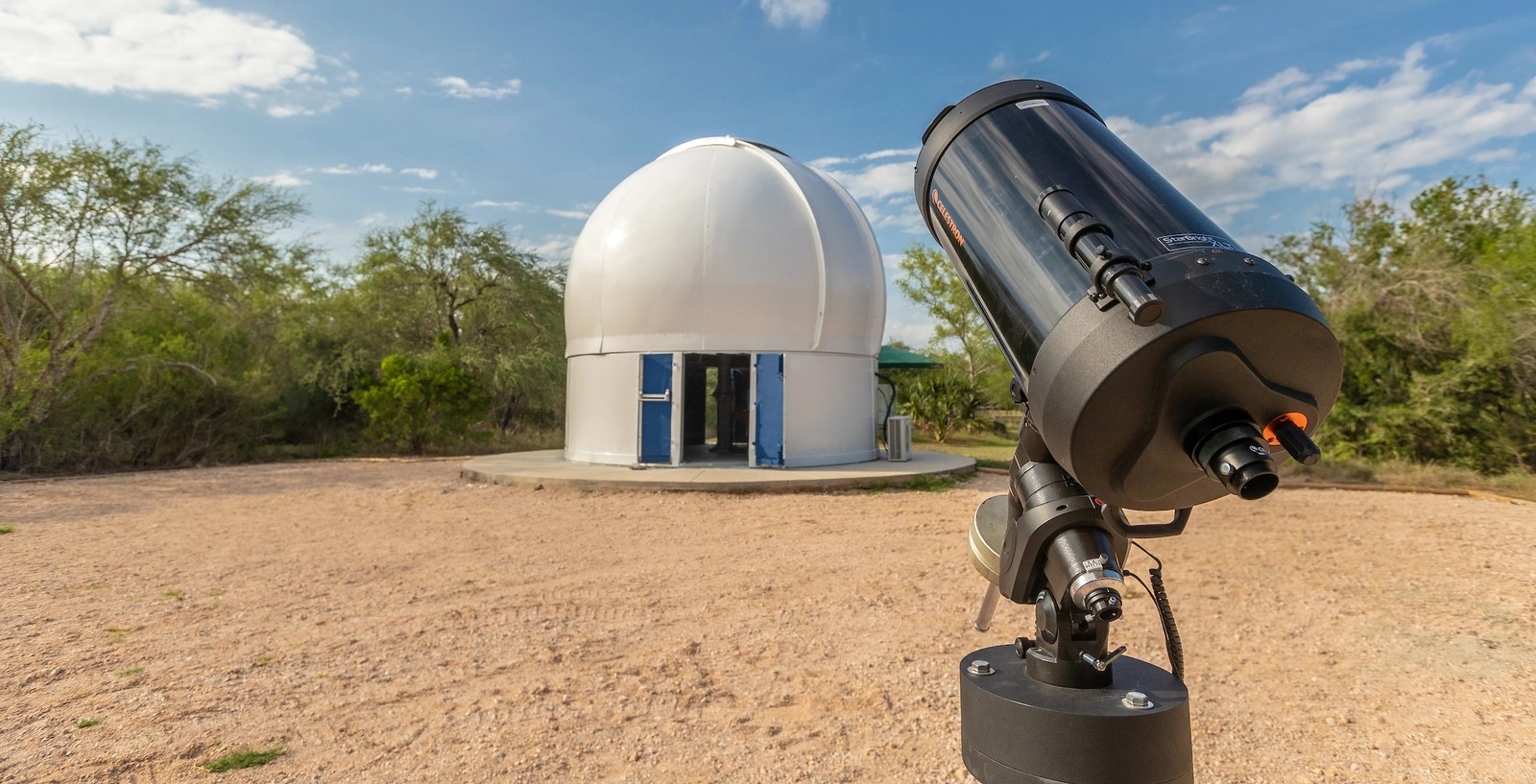Academic Programs
Bachelor's
Applied Statistics & Data Science (BS)
Bachelor of Science in Applied Statistics & Data Science
Program Modality: Campus
The Bachelor’s degree in Applied Statistics & Data Science exposes students to the fundamental knowledge and skills needed to solve real-world problems using statistical and mathematical techniques.
Upon graduation, students are prepared to pursue a career providing businesses and organizations with invaluable information about their products or clients.
Biology (BS)
Bachelor of Science in Biology
Program Modality: Campus
The Bachelor's degree in Biology provides students with a broad-based undergraduate education in biology that will prepare them for graduate study or careers in the field. Topics cover plant, animal, and human life, including molecular biology, cell biology, and human evolution.
A biology minor is also offered:
Biology - Teacher Certification (BS)
Bachelor of Science in Biology - Teacher Certification
Program Modality: Campus
The Bachelor's degree in Biology with Teacher Certification prepares students for careers as science teachers. Students become proficient in the biology field while learning how to educate others. Students may choose from the Biology with Teacher Certification degree which prepares students to become secondary teachers or the Interdisciplinary Studies degree which prepares students to become science teachers in grades 4 to 8. Students who successfully complete all requirements of either of these majors may be eligible to seek teacher certification.
UTRGV is approved by the Texas Education Agency to recommend students who complete all requirements of this degree for teaching certification.
Concentrations:
Chemistry (BS)
Bachelor of Science in Chemistry
Program Modality: Campus
The Bachelor of Science in Chemistry at UTRGV is for those who enjoy learning about the complex ways that the elements on the periodic table combine and have a passion for research. This program will prepare you for a lucrative career in research or to pursue graduate studies in chemistry related disciplines.
Students receiving the BS Degree in Chemistry (broad field Major) can continue their academic studies into masters or doctoral programs in Chemistry or can use the degree to find employment as a chemist. This degree can also be combined with teacher certification work to enter a career as a secondary school teacher of chemistry. The Chemistry (broad field Major) degree is certified by the American Chemical Society. Some of the topics that students will explore include biochemistry, medicinal chemistry, and nutritional and exercise biochemistry.
Chemistry - Teacher Certification (BS)
Bachelor of Science in Chemistry - Teacher Certification
Program Modality: Campus
The Bachelor’s degree in Chemistry with Teacher Certification is for students who have a passion for research and enjoy learning about biochemistry, medicinal chemistry, and nutritional and exercise biochemistry. The program provides a pathway for certification as a secondary school chemistry teacher.
UTRGV is approved by the State Board of Educator Certification to recommend students who complete all requirements of this degree for teaching certification.
Environmental Science (BS)
Bachelor of Science in Environmental Science
Program Modality: Campus
The Bachelor's degree in Environmental Sciences focuses on understanding and addressing key environmental issues. Electives allow students to focus on areas of interest in several concentrations, taking advantage of the unique ecosystem of the Rio Grande Valley. Experiential learning activities prepare students for careers at various local, state, and federal agencies, non-profit organizations, and environmental consulting firms. Program graduates may pursue graduate studies in environmental science, geosciences, and ecology.
Concentrations:
Marine Biology (BS)
Bachelor of Science in Marine Biology
Program Modality: Campus
The Bachelor’s degree in Marine Biology focuses on the biology of marine organisms and coastal and oceanic ecosystems. The program takes advantage of the Rio Grande Valley’s unique physical location and the tropical climate of the Gulf of Mexico. Students develop expertise in the biology of marine organisms and the biological processes that affect these organisms, their populations, and their coastal and oceanic ecosystems.
Mathematics (BS)
Bachelor of Science in Mathematics
Program Modality: Campus
The Bachelor's degree in Mathematics provides the skills for students to become proficient in mathematics, from calculus to differential equations. Program graduates are prepared for careers as mathematicians, scientists, engineers, and educators.
The program has five concentrations that you can choose from Applied Mathematics, Pure Mathematics, Statistics, Science and Engineering, and Economics. Students can also expect to take a wide array of courses such as calculus, applied discrete mathematics, and actuarial financial math.
Concentrations/Certifications:
Mathematics - Teacher Certification (BS)
Bachelor of Science in Mathematics - Teacher Certification
Program Modality: Campus
The Bachelor's degree in Mathematics with Teacher Certification provides the skills for students to become proficient in mathematics, from calculus to differential equations. Program graduates are prepared for careers as mathematics educators, mathematicians, scientists, and engineers. The program provides a pathway to 4-8 Teacher Certification, 7-12 Teacher Certification, or Middle School Mathematics 4-8 Teacher Certification.
UTRGV is approved by the State Board of Educator Certification to recommend students who complete all requirements of this degree for teaching certification.
Concentrations/Certifications:
Physics (BS)
Bachelor of Science in Physics
Program Modality: Campus
The Bachelor's degree in Physics provides students with a solid understanding of the fundamental laws that can be applied to a wide array of scientific and engineering fields, including gravitational wave technology, computational physics, and biophysics. The program offers two concentrations that prepare students for the pursuit of graduate studies.
Concentrations:
Physics - Teacher (BS)
Bachelor of Science in Physics (Teacher Certification)
Program Modality: Campus
The Bachelor’s degree in Physics with Teacher Certification prepares students to become proficient in the physics field while learning how to educate the future generation of scientists. The program provides a pathway to teacher certification.
UTRGV is approved by the State Board of Educator Certification to recommend students who complete all requirements of this degree for teaching certification.
Sustainable Agriculture and Food Systems (BS)
Bachelor of Science in Sustainable Agriculture and Food Systems
Program Modality: Campus
The multidisciplinary Bachelor’s degree in Sustainable Agriculture and Food Systems serves students interested in improving the sustainability of modern food and agricultural systems. The program prepares graduates to understand the interdisciplinary and systems-based aspects of sustainability and provides them with the knowledge, leadership skills, and experience required to excel in the agricultural and food systems professions.
Master's
Agricultural, Environmental, and Sustainability Sciences (MS)
Master of Science in Agricultural, Environmental, and Sustainability Sciences
Program Modality: Campus
The Master’s degree in Agricultural, Environmental, and Sustainability Sciences provides students with a unique, integrative education and training experience that prepares them to meet the challenges and opportunities in the multiple dimensions of contemporary agricultural, environmental and sustainability science disciplines.
This multi-disciplinary degree program targets students wishing to pursue a graduate degree that prepares them to contribute their expertise to advancing sustainable agriculture, stewardship of natural resources and ecosystem services, or the development of sustainable systems.
Applied Statistics and Data Science (MS)
Master of Science in Applied Statistics and Data Science
Program Modality: Online
Program Modality: Campus
Program Modality: Campus and Online
The Master’s degree in Applied Statistics and Data Science covers a broad range of applied statistical methods and computational tools such as data science processes, machine learning, data visualization, algorithmic and computational thinking, ethics, and algorithmic accountability. Program graduates acquire competency in the areas of computational and statistical thinking, mathematical foundations, algorithms and software foundation, data curation, and knowledge transference—communication and responsibility.
Biochemistry and Molecular Biology (MS)
Master of Science in Biochemistry and Molecular Biology
Program Modality: Campus
The Master’s degree in Biochemistry and Molecular Biology provides an advanced multidisciplinary program of study for students in biochemistry, cell biology, molecular biology, bio-medical research, biotechnology, pharmaceutical, and health care fields. This program provides students with the skills, knowledge, and leadership ability necessary for these careers as well as in education, administration, and healthcare-related areas.
This degree program draws upon expertise and resources from various subjects such as biology, chemistry, physics, mathematics and statistical sciences, environmental and marine sciences, and health professions.
Biology (MS)
Master of Science in Biology
Program Modality: Campus
The Master’s degree in Biology emphasizes hands-on problem-solving and scientific discovery. Students gain an understanding of how organisms maintain homeostasis, reproduce, evolve, and how they interact with each other and their environment, within the following areas: genetics, evolution, ecology, cellular, and molecular biology, developmental biology, organismal biology, and physiology.
Program graduates are prepared to be competent, confident, and competitive for a variety of careers in the biological sciences.
Chemistry (MS)
Master of Science in Chemistry
Program Modality: Campus
The Master’s degree in Chemistry covers fundamental chemistry areas including but not limited to environmental chemistry, medicinal chemistry, and materials chemistry. Program graduates are prepared for careers as professional chemists.
Mathematics (MS)
Master of Science in Mathematics
Program Modality: Online
Program Modality: Campus
The Master's degree in Mathematics provides graduate-level education for students who intend to teach at various levels, find employment within the industrial sector, or continue their education beyond the master's level. The program offers the following concentrations.
On-Campus Concentrations:
Online Concentrations:
Ocean, Coastal and Earth Sciences (MS)
Master of Science in Ocean, Coastal, and Earth Sciences
Program Modality: Campus
The Master’s degree in Ocean, Coastal, and Earth Sciences provides students with a unique integrative education and training experience that prepares them to meet the challenges and opportunities in the marine, coastal, and environmental science disciplines.
This multidisciplinary program provides a rigorous applied and theoretical education in the marine and coastal sciences with an emphasis on the environmental impacts of anthropogenic and natural processes along the Texas coastline and beyond.
Physics (MSIS)
Master of Science in Interdisciplinary Studies with a Concentration in Physics
Program Modality: Campus
The Master of Science in Interdisciplinary Studies (MSIS) program with a concentration in Physics is a 30-hour program tailored to STEM teachers and STEM majors seeking comprehensive interdisciplinary training and research experiences. Depending on your career goals, you will select 18 hours of physics coursework, complemented by 6-12 hours in fields such as Education, Chemistry, Computer Science, and Mathematics. The MSIS program offers both thesis and non-thesis tracks to cater to your academic preferences.
This unique program equips you with the scientific knowledge and interdisciplinary research skills necessary to thrive in the ever-evolving professional landscape. Graduates emerge with a robust foundation in physics, mathematics, chemistry, instructional technology, computer science, and STEM education and research, positioning them as highly competitive professionals in today's dynamic workforce.
Doctorate
Human Genetics (PhD)
Doctor of Philosophy in Human Genetics
Program Modality: Campus
The Doctoral degree in Human Genetics focuses on applications of human genetics to medicine and encompasses training across the breadth of genetics from molecular genetics to computational approaches to analysis. Dramatic growth is occurring in genetic testing and genetic approaches both in personalized medicine and in basic research for understanding the determinants of disease risk. This research-intensive program will prepare scientists to develop innovative strategies and techniques for identifying the genetic determinants of risk for complex diseases.
Mathematics and Statistics with Interdisciplinary Applications (PhD)
Doctor of Philosophy in Mathematics and Statistics with Interdisciplinary Applications
Program Modality: Campus
The Doctoral degree in Mathematics and Statistics with Interdisciplinary Applications allows students to study cutting-edge scientific problems within the quantitative disciplines offered in the program.
The flexibility of this research-driven program provides a strong mathematics and statistics background to support intense quantitative work in diverse disciplines such as health care, engineering, biomedicine, and other science-focused disciplines.
Physics (PhD)
Doctor of Philosophy in Physics
Program Modality: Campus
The Doctoral degree in Physics provides students with a broad background in classical and modern physics. Modern physics has entered a new era of expanding quantitative understanding of large-scale and multidisciplinary complex systems, impacting science, technology, medicine, and the economy.
The program trains professionals who can develop research-based solutions in the areas of gravitational wave astronomy, optical and radio astronomy, optical physics, nanophysics, and materials physics, condensed matter physics, high-energy physics, biophysics, biomedical physics, and physics education.

